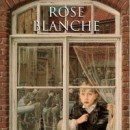Our school curriculum is driven and shaped by our school vision, which informs everything that we do.
St Nicholas provides a welcoming, inclusive and aspirational learning environment at the heart of its community. We nurture, encourage and support all children, adults and their families to be the best as God intended. Following God’s example of love and trust, we develop resilience and creativity in all we do.
Learning, loving and encouraging through Christ.
An uncompromising focus on pupils’ personal development has made St Nicholas Church of England Primary Academy a place where pupils always come first. Ofsted 2019
At St Nicholas CE Primary Academy, we want all our children to develop into thoughtful readers and creative writers. To support us with this, we use a range of quality texts (ranging from picture books to information texts, short stories to adapted fairy tales and novels) that engage the children and provides them with a focus for writing.
By using quality texts, the children are exposed to new and adventurous language which enhance the children’s oracy skills and styles and structures which help to develop their skills in writing; the impact of this is that the children are able to develop a deeper understanding of writing, they foster a love for writing and achieve well in it.
Through drama activities the children are able to develop their vocabulary and recreate moments from the text: providing the children with a deeper knowledge of character emotions and feelings and providing the children with an opportunity to experience situations which help to develop empathy for the characters within their writing.
Oracy is also developed through children engaging and working together to develop ideas and articulating their ideas to each other as well as present their ideas more widely.
“I really enjoy when we do drama because it helps me to really know the text we are reading.”
“Drama is fun. It helps me know what the book is about.”
“Drama activities like hot-seating and freeze-frames help me to understand the characters more.”
In Years 1 and 2, the children learn how to write to entertain (poetry, narratives, descriptions) and inform (instructions, factual writing) the reader. In Years 3 and 4, they consolidate their understanding of writing to entertain and inform and begin to learn how to persuade (letters and advertisements) their reader. In Years 5 and 6, the children have a good knowledge of writing to entertain and inform, they consolidate their writing to persuade and learn how to write to discuss (balanced arguments).
Through careful progressive long term planning, the children are taught grammar, punctuation and spelling explicitly and through modelled, shared and guided writing through their English lessons. Within these sessions, the children consolidate previous punctuation and grammatical features and learn new features which support the current focus of writing.
To support spelling, children from Reception to Year two are taught Read Write Inc Phonics and then move to the Read Write Inc Get Spelling Programme in Year 2 through to Year 6. https://home.oxfordowl.co.uk/english/
Within English lessons, teachers’ model and share writing which enables the children to experience the teacher as a writer and shows them how to craft their writing and the thought process for writing. This allows the children to experience how grammar and punctuation are used effectively in writing as well as how to edit, revise and improve effectively. Throughout the lesson, groups of children work with an adult in guided writing to build their skills.
Within a series of lessons, the children learn the underlying structures of a range of genres (letter writing, different styles of narratives (journey stories, suspense), the process of planning, key strategies for creating interesting characters and settings and how to use a range of sentence types to create different effects including suspense or adventure.
In addition to writing in English lessons, we ensure that children have the opportunity to write at length across the wider curriculum. In topic lessons this include a diary entry as a character from Victorian England or a balanced argument about Tudor punishments, looking at whether they were too cruel or justified. In Science, children are encouraged to hypothesize and write up their experiment findings.
The children are encouraged and enjoy writing for real purposes and, among other things, have written: poems and prayers for Lights Up New Romney; letters to local supermarkets to help us with fundraising and Christmas and Easter cards for CALM.
Some of our children have also had the opportunity to work collaboratively with Christ Church University for their ‘Being Human’ event. We were able to welcome students and lecturers into school to work with the children in Year 5. The children were inspired by characters who appear in female authors books and designed their own Top Trump style cards about some of these characters. The children had a lovely time playing these cards once they had been created into a pack of cards and were thrilled to all be able to take a pack home with them too.
This was further developed when children from the whole school and wider community were invited to attend a Graphic Novel workshop on a Saturday at the school. The children (and their parents and carers) were able to take a section of an adaptation of Mary Shelley’s Mortal, Immortal and design their own page for the Graphic Novel. Again, the results were incredible and the children who attended were delighted to receive their own copy.
“I was so happy to see my drawings in the Graphic Novel!”
“I loved seeing the Top Trump card that I’d designed in the pack of cards but I also loved seeing my friends’ cards too.”
“I was amazed how many characters I knew from female authors.”

















































